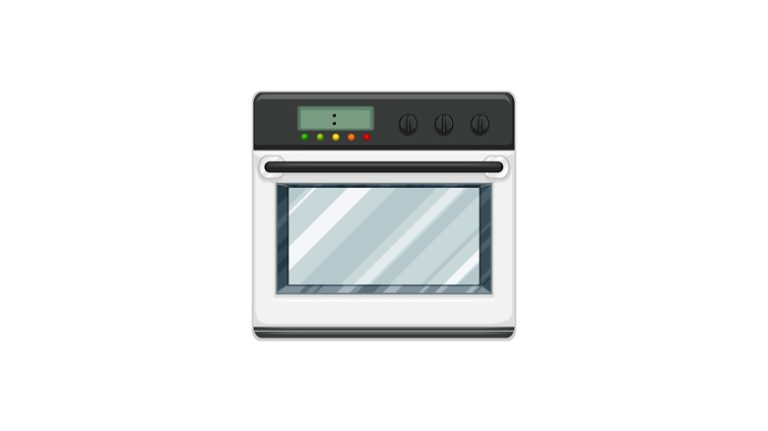Can You Be Allergic to Coffee? Understanding Symptoms, Causes, and Solutions
Coffee is a beloved beverage for millions worldwide, offering a morning boost or a midday pick-me-up. Its rich aroma and bold flavor make it a staple in many households. But what happens when your daily cup of java leaves you feeling unwell? Can you be allergic to coffee? While a true coffee allergy is rare, reactions to coffee are more common than you might think. In this article, we’ll explore whether you can develop an allergy to coffee, what triggers these reactions, and how to manage them effectively—all while diving into the science behind your symptoms.
What Does It Mean to Be Allergic to Coffee?
An allergy occurs when your immune system mistakenly identifies a substance as harmful and launches an attack, releasing histamines and other chemicals. This response can cause symptoms like itching, swelling, or difficulty breathing. When it comes to coffee, the question is whether the beans, the brew, or something else in your cup is to blame.
Technically, a true allergy to coffee—specifically to coffee beans as a standalone allergen—is extremely uncommon. Coffee beans are seeds from the Coffea plant, and while plants like peanuts or tree nuts are well-known allergens, coffee doesn’t typically trigger the same immune response. However, some people do experience adverse reactions to coffee, which may feel like an allergy but stem from different causes, such as sensitivity, intolerance, or reactions to compounds in the drink.
Symptoms of a Coffee-Related Reaction
If you suspect you’re allergic to coffee, the symptoms you experience are key to understanding what’s happening. Here’s what you might notice:
- Skin Reactions: Itching, hives, or redness could signal an immune response or sensitivity.
- Respiratory Issues: Wheezing, shortness of breath, or a runny nose might occur in rare allergic cases.
- Digestive Distress: Nausea, stomach cramps, or diarrhea are more often linked to intolerance than a true allergy.
- Headaches or Jitteriness: Feeling shaky or anxious might point to caffeine sensitivity rather than an allergy.
- Swelling: Lip, tongue, or throat swelling is a serious sign that requires immediate attention.
These symptoms overlap with allergies, intolerances, and even side effects of caffeine. So, how do you know if coffee is the culprit?
Can Coffee Beans Trigger an Allergy?
While rare, some individuals may be allergic to proteins in coffee beans. Research suggests that certain proteins, like those in green (unroasted) coffee beans, can act as allergens for people exposed to them—like coffee workers handling raw beans. A 2018 study published in The Journal of Allergy and Clinical Immunology identified specific coffee bean proteins that could provoke an immune response in sensitive individuals. However, once coffee is roasted and brewed, these proteins are often denatured, reducing their allergenic potential.
For the average coffee drinker, a true bean allergy is unlikely. More commonly, reactions stem from other factors tied to coffee consumption.
Common Causes of Coffee Reactions
If you’re not allergic to coffee beans, why do you feel off after drinking it? Let’s break down the likely culprits:
1. Caffeine Sensitivity
Caffeine, the star stimulant in coffee, affects everyone differently. Some people metabolize it slowly due to genetic variations, leading to symptoms like rapid heartbeat, anxiety, or upset stomach. This isn’t an allergy—it’s your body saying, “Too much, too fast.”
2. Acidic Compounds
Coffee is naturally acidic, with a pH of around 4.5 to 5. This acidity can irritate your stomach lining, causing discomfort, acid reflux, or bloating—especially if you drink it on an empty stomach.
3. Additives and Contaminants
What’s in your coffee? Milk, cream, sugar, or flavored syrups could be the real triggers. Lactose intolerance, for instance, affects up to 65% of adults worldwide, leading to gas, bloating, or cramps after a latte. Mold or mycotoxins—toxic compounds from fungi on poorly stored beans—might also cause reactions in sensitive individuals, though this is debated in scientific circles.
4. Cross-Reactivity
If you’re allergic to legumes (like peanuts or soy), you might experience cross-reactivity with coffee due to shared plant proteins. This is rare but possible, especially if you have multiple food allergies.
5. Chemical Sensitivities
Pesticides or processing chemicals used in coffee production could irritate some people, mimicking allergic symptoms. Opting for organic coffee might help rule this out.
Coffee Intolerance vs. Coffee Allergy: What’s the Difference?
An intolerance doesn’t involve your immune system—it’s a digestive or metabolic issue. For example, if coffee gives you jitters or an upset stomach but no hives or breathing trouble, it’s likely an intolerance or sensitivity. Allergies, on the other hand, produce immune-driven symptoms like rash or anaphylaxis. Here’s a quick comparison:
- Allergy: Immune response, rare with coffee, potentially severe (e.g., anaphylaxis).
- Intolerance: Non-immune, common, milder (e.g., bloating, headache).
If you’re unsure, tracking symptoms after drinking plain black coffee versus a flavored brew can help pinpoint the issue.
Who’s at Risk for Coffee Reactions?
Certain factors might increase your likelihood of reacting to coffee:
- Existing Allergies: People with hay fever, asthma, or food allergies may be more prone to sensitivities.
- Digestive Conditions: IBS or GERD can amplify coffee’s acidic effects.
- Caffeine Metabolism: Slow metabolizers feel caffeine’s effects more intensely.
- Occupational Exposure: Baristas or roasters handling raw beans might develop sensitivity over time.
How to Test for a Coffee Allergy or Sensitivity
Wondering if coffee’s to blame? Here’s how to find out:
- Elimination Diet: Stop drinking coffee for 2–4 weeks. Note any symptom changes, then reintroduce it gradually.
- Allergy Testing: See an allergist for skin prick or blood tests to check for coffee-specific IgE antibodies.
- Symptom Journal: Record what you drink (e.g., black coffee vs. cappuccino) and how you feel afterward.
- Switch Variables: Try decaf, organic, or single-origin coffee to isolate triggers like caffeine or additives.
If symptoms persist or worsen, consult a healthcare professional—especially if you suspect anaphylaxis, a rare but life-threatening allergic reaction.
Managing Coffee Reactions: Practical Solutions
Good news: You don’t have to ditch coffee entirely. Try these strategies:
- Switch to Low-Acid Coffee: Brands like cold brew or those labeled “low-acid” are gentler on your stomach.
- Cut Caffeine: Decaf coffee retains flavor without the stimulant kick.
- Check Additives: Skip milk or sweeteners to see if they’re the problem.
- Dilute It: Mix coffee with water or plant-based milk to reduce concentration.
- Hydrate: Drink water alongside coffee to offset acidity and dehydration.
Coffee Alternatives for Sensitive Sippers
If coffee doesn’t agree with you, explore these options:
- Chicory Root: A caffeine-free, coffee-like brew.
- Herbal Tea: Rooibos or peppermint offers flavor without irritation.
- Golden Milk: Turmeric and spices in warm milk for a cozy vibe.
- Matcha: A smoother caffeine source from green tea.
When to See a Doctor
Most coffee reactions are manageable, but seek medical help if you experience:
- Severe swelling or breathing difficulty.
- Persistent vomiting or diarrhea.
- Symptoms that disrupt daily life.
Final Thoughts: Can You Be Allergic to Coffee?
While a true coffee allergy is rare, reactions to coffee are real and varied—ranging from caffeine sensitivity to intolerance to additives. By understanding your symptoms and experimenting with adjustments, you can often keep coffee in your life without the discomfort. Whether it’s swapping to decaf or skipping the creamer, small changes can make a big difference. So, can you be allergic to coffee? Possibly—but more likely, your body’s sending a signal to tweak how you enjoy it.





